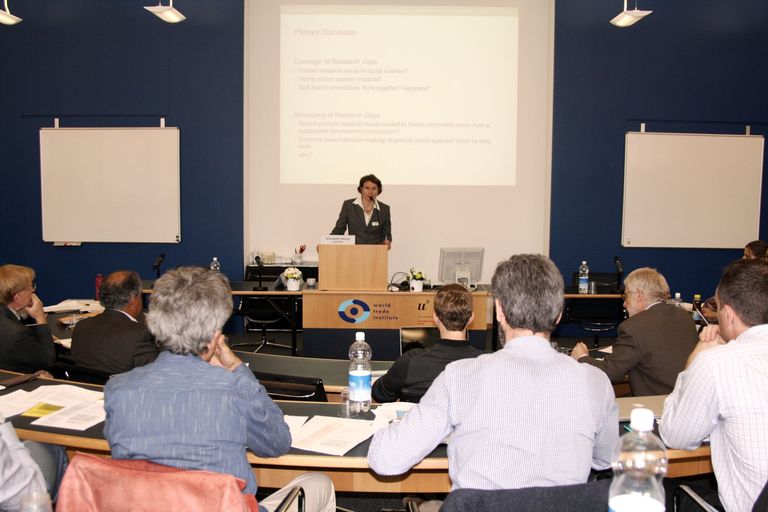The Commodity Sector and Related Governance Challenges from a Sustainable Development Perspective: The Example of Switzerland
Current Research Gaps
This working paper was written in the context of the project "Global change and Developing Countries: Why should we care?” managed by the Commission for Research Partnerships with Developing Countries (KFPE) and ProClim. It aims at identifying main knowledge gaps and providing a basis for further academic research on commodity investment and trading, while informing current policy debates and decision-making processes in Switzerland.
Switzerland has a long history of involvement in commodity trading. In recent years, the Swiss commodity sector has come under increasing scrutiny, mainly because of the substantial growth experienced by global commodity trade since 2002 and the importance of Switzerland as a leading international commodity trading hub. These developments have put commodity trading squarely on the agenda of Swiss institutions and non-governmental organizations (NGOs).
The paper is organized in the following sections:
Section 1 gives an overview of the Swiss commodity sector. It illustrates the driving factors that contributed to making Switzerland a leading international commodity trading hub, and describes the structure of the sector in the country.
Section 2 gives an account of the literature on the impacts of commodity investment and trading in both host (resourcerich) countries and home countries (and Switzerland in particular).
Section 3 identifies and discusses positive and negative socio-economic (i.e. livelihood), environmental and governance-related impacts resulting from both soft and hard commodity production in commodity-dependent developing countries (CDDCs) where Swiss-based companies operate based on existing research.
Section 4 provides an overview of hard law instruments and soft law initiatives aimed at mitigating or preventing the occurrence of negative impacts on human rights and on the environment of relevance for the commodity sector.
Main knowledge gaps and areas of interest for future academic research will be identified at the end of each section.
Source: WTI Working Paper 14. July 2015. Bürgi Bonanomi et. al

